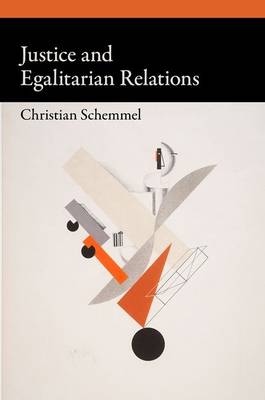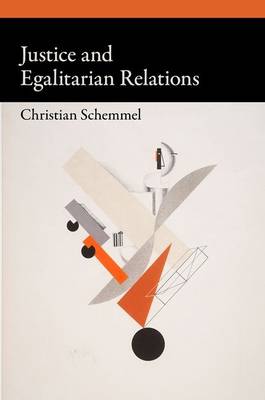
Je cadeautjes zeker op tijd in huis hebben voor de feestdagen? Kom langs in onze winkels en vind het perfecte geschenk!
- Afhalen na 1 uur in een winkel met voorraad
- Gratis thuislevering in België vanaf € 30
- Ruim aanbod met 7 miljoen producten
Je cadeautjes zeker op tijd in huis hebben voor de feestdagen? Kom langs in onze winkels en vind het perfecte geschenk!
- Afhalen na 1 uur in een winkel met voorraad
- Gratis thuislevering in België vanaf € 30
- Ruim aanbod met 7 miljoen producten
Zoeken
Omschrijving
Why does equality matter, as a social and political value, and what does it require? Relational egalitarians argue that it does not require that people receive equal distributive shares of some good, but that they relate as equals. Christian Schemmel here provides the first comprehensive
development of a liberal conception of relational equality, one which understands relations of non-domination and egalitarian norms of social status as stringent demands of social justice. He first argues that expressing respect for the freedom and equality of individuals in social cooperation requires stringent protections against domination. Taking this as a starting point, he then develops a substantive, liberal conception of non-domination and argues that non-domination is a
particularly important, but not the only, concern of social justice. From there, Schemmel develops an account of the wrongness of inegalitarian norms of social status which shows how status-induced foreclosure of important social opportunities is a social injustice in its own right, over and above
the role of status inequality in enabling domination, and the threats it poses to individuals' self-respect. Finally, Schemmel articulates the implications of liberal relational egalitarianism for political, economic, and health justice, showing that it demands, in practice, far-reaching forms of
equality in all three domains. With expert rigor and creativity, Justice and Egalitarian Relations brings together scholarship in a variety of related topics, from social justice and liberalism to distributive and social equality, republicanism, non-domination, and self-respect.
development of a liberal conception of relational equality, one which understands relations of non-domination and egalitarian norms of social status as stringent demands of social justice. He first argues that expressing respect for the freedom and equality of individuals in social cooperation requires stringent protections against domination. Taking this as a starting point, he then develops a substantive, liberal conception of non-domination and argues that non-domination is a
particularly important, but not the only, concern of social justice. From there, Schemmel develops an account of the wrongness of inegalitarian norms of social status which shows how status-induced foreclosure of important social opportunities is a social injustice in its own right, over and above
the role of status inequality in enabling domination, and the threats it poses to individuals' self-respect. Finally, Schemmel articulates the implications of liberal relational egalitarianism for political, economic, and health justice, showing that it demands, in practice, far-reaching forms of
equality in all three domains. With expert rigor and creativity, Justice and Egalitarian Relations brings together scholarship in a variety of related topics, from social justice and liberalism to distributive and social equality, republicanism, non-domination, and self-respect.
Specificaties
Betrokkenen
- Auteur(s):
- Uitgeverij:
Inhoud
- Aantal bladzijden:
- 336
- Taal:
- Engels
- Reeks:
Eigenschappen
- Productcode (EAN):
- 9780190084240
- Verschijningsdatum:
- 29/03/2021
- Uitvoering:
- Hardcover
- Formaat:
- Genaaid
- Afmetingen:
- 160 mm x 239 mm
- Gewicht:
- 635 g

Alleen bij Standaard Boekhandel
+ 322 punten op je klantenkaart van Standaard Boekhandel
Beoordelingen
We publiceren alleen reviews die voldoen aan de voorwaarden voor reviews. Bekijk onze voorwaarden voor reviews.









